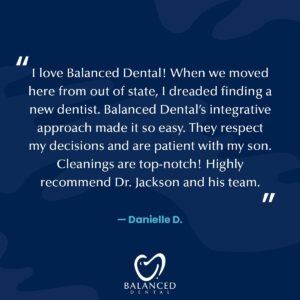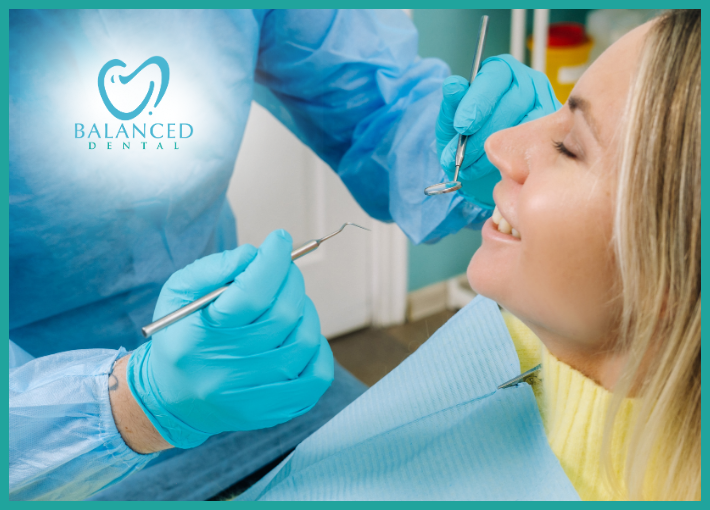Dental fillings are a common and effective treatment for cavities, restoring tooth structure and preventing further decay. Understanding the types of fillings available, the procedure involved, and proper aftercare is crucial for maintaining a healthy smile. Read all our valuable information about dental fillings, empowering you to make informed decisions about your oral health. Come in and meet our team and get your questions answered on your fillings and oral health.
What are dental fillings?
Dental fillings are a type of restorative dentistry treatment. Dentists use them to repair cavities or fix minor chips and cracks in your teeth.
Other names for dental fillings include:
- Tooth fillings.
- Cavity fillings.
- Dental restorations. (This term refers to a range of treatments that restore teeth, like fillings, inlays, onlays, bridges and crowns.)
Your dentist can discuss treatment options with you and determine which type of dental filling is better for your situation.
Types of dental fillings
There are many different types of dental fillings. But they all fall into one of two categories: direct or indirect.
Direct fillings
Dentists create and place direct fillings in your mouth without the need for a dental laboratory or temporary restoration. A direct filling only requires one office visit.
Common materials for direct fillings are:
- Amalgam (silver in color; contains mercury mixed with silver, tin, zinc and copper).
- Resin composite (tooth-colored; consists of a resin base with powdered quartz, silica or glass).
- Glass ionomer (tooth-colored; made of silica glass powder).
Indirect fillings
A dental technician must make indirect fillings in a lab before your dentist places them in your mouth. Most indirect fillings require two office visits — one to take dental impressions and another to place your restoration. If your dentist uses CAD/CAM (computer-aided design/computer-aided manufacturing) technology, they may be able to create and place your indirect filling in a single appointment.
Inlays and onlays are two common types of indirect fillings. Dentists use them when a tooth has too much damage to support a filling but not enough damage to warrant a dental crown. An inlay or onlay fits into your existing tooth structure like a tiny puzzle piece.

Common materials for indirect fillings include:
- Gold (gold in color; contains gold mixed with other metals like silver, tin, copper or palladium).
- Porcelain (tooth-colored; contains a mixture of minerals like feldspar, quartz and kaolin).
Procedure Details
What happens during a dental filling procedure?
Exact steps can vary depending on the material your dentist uses and the type of filling they place. But here’s a general idea of what to expect.
A dentist will:
- Numb your tooth with local anesthesia.
- Remove damaged or decayed tissue from your tooth using specialized instruments.
- Fill the hole with dental filling material.
- Use a dental curing light to harden the material (only for resin composite).
- Polish and smooth any rough edges.
- Check your bite to make sure it feels normal.
If you have anxiety about visiting the dentist, ask about sedation options. Sedation dentistry helps keep you calm and comfortable during your procedure.
Risks / Benefits
What are the benefits of dental fillings?
Dental fillings treat existing tooth decay and reduce the risk of future damage. Depending on the type of filling, they can also:
- Strengthen weakened teeth.
- Preserve your natural tooth structure.
- Restore chewing function.
- Enhance the appearance of your teeth.
- Last for a long time (10 to 20 years).
What are the possible complications of dental fillings?
After a dental filling procedure, it’s normal to experience minor teeth sensitivity and gum soreness in the area. These side effects are temporary and should go away in a week or two.
Complications that may require additional treatment are less common, but may include:
- A throbbing toothache. This could mean that decay reached your tooth pulp. You may need root canal therapy.
- Pain when biting down. This type of pain can occur if your new filling interferes with your bite. Your dentist can fix this by reshaping your filling.
- Pain in response to heat or cold. If you have intense pain that lingers after something hot or cold touches your tooth, it might mean the nerve inside your tooth is damaged. You may need a root canal or tooth extraction.
Are amalgam fillings safe?
The American Dental Association (ADA), the U.S. Food and Drug Administration (FDA) and numerous public health agencies say that silver (mercury-based) amalgam fillings are safe. But the FDA recently issued updated recommendations about the use of amalgam fillings in certain people. According to their research, some individuals may have a higher risk for harmful health effects of mercury vapors and should avoid getting amalgam fillings whenever possible.
People at greater risk include:
- Pregnant people and their developing fetuses.
- People who are planning to become pregnant within the year.
- People who breastfeed (chestfeed) and their newborns.
- Children, especially those younger than 6 years of age.
- People with pre-existing neurological diseases, including Alzheimer’s disease, multiple sclerosis or Parkinson’s disease.
- People with impaired kidney function.
- People with sensitivities or allergies to mercury or other components of dental amalgam.
The FDA doesn’t recommend removing dental amalgam in people at higher risk if the amalgam is in good condition. Doing so may increase exposure to mercury vapor and result in more risks than benefits.
Recovery and Outlook
How long does it take to recover after a dental filling procedure?
Unless you had sedation, you should be able to return to routine activities immediately after your appointment. Over-the-counter pain relievers like acetaminophen (Tylenol®) or ibuprofen (Advil®) can help manage any soreness or sensitivity.
Can I eat after a filling?
Technically, you can eat or drink whatever you want as soon as your procedure is over. It won’t damage your new filling in any way. But waiting until the numbness wears off can keep you from accidentally biting the inside of your cheeks. If you do eat right away, chew slowly and be mindful.
When To Call the Doctor
When should I call my dentist?
Call your dentist right away if your dental filling breaks or you develop:
- Severe pain that doesn’t go away with medication.
- A swollen face or jaw.
- Fever, chills or other signs of infection.
Additional Common Questions
Does getting a filling hurt?
Getting a filling shouldn’t hurt because your dentist will use local anesthesia to numb the area. If you feel any discomfort during your procedure, let your dentist know so they can give you more numbing medication.
Do fillings remove decay?
Before a dentist places a filling, they must remove the decayed or damaged portion of your tooth. Leaving diseased tissue behind can cause the cavity to grow larger.

When is it too late to get a tooth filling?
If a cavity grows so large that it reaches the pulp of your tooth, a dental filling won’t fix the issue. In this situation, you would need a root canal.
A note from Cleveland Clinic
Let’s face it — no one really loves going to the dentist. But when it comes to treating cavities, the earlier the better. Dental fillings strengthen your existing tooth structure and reduce your risk of further decay. That means less time in the dental chair and less money spent in the long run. To reduce your overall risk of tooth decay, be sure to visit a dentist for regular cleanings and checkups.
Balanced Dental offers a healthier, more natural approach to cavity care. Experience the benefits of mercury-free, metal-free fillings. Call us today at 772.247.2407. Follow our Instagram for more dental tips.
Reference: [https://my.clevelandclinic.org/health/treatments/17002-dental-fillings]












